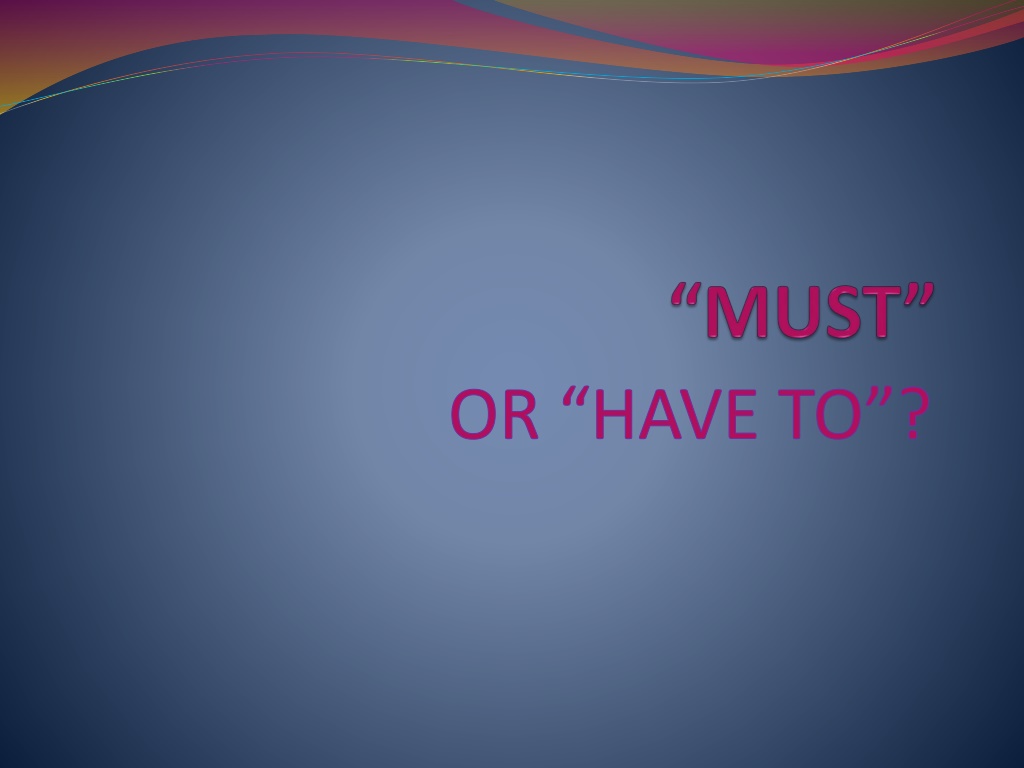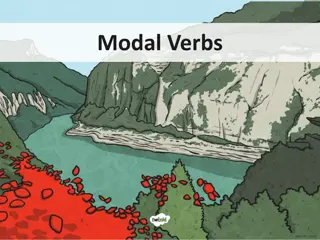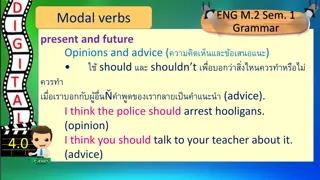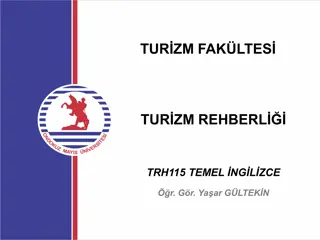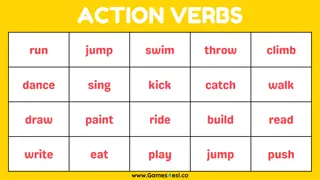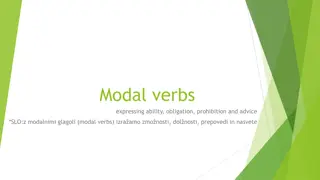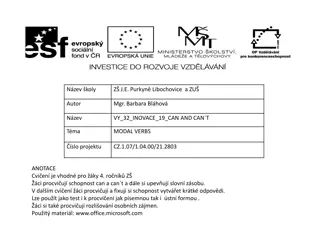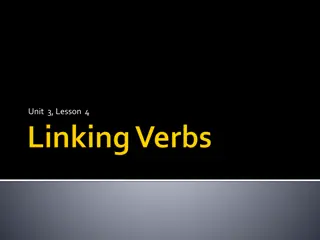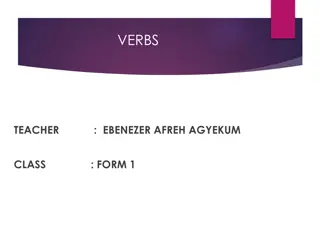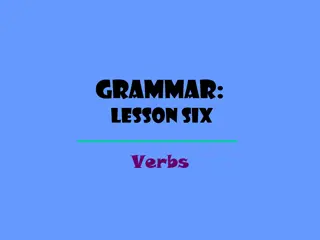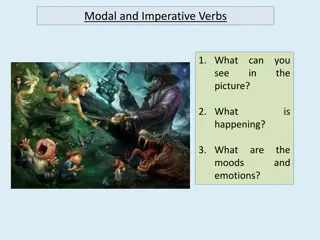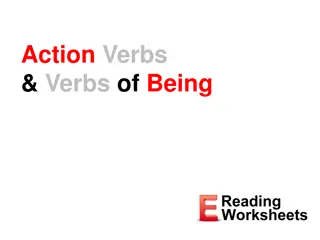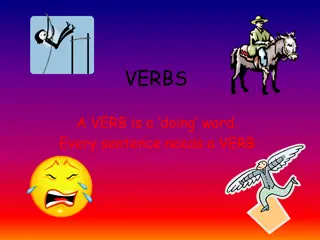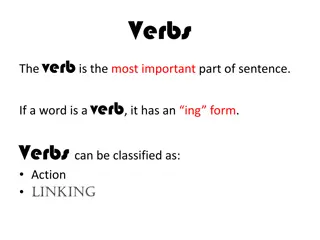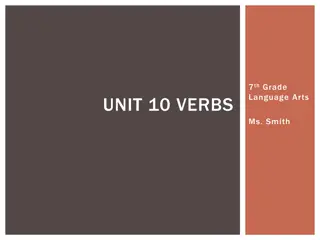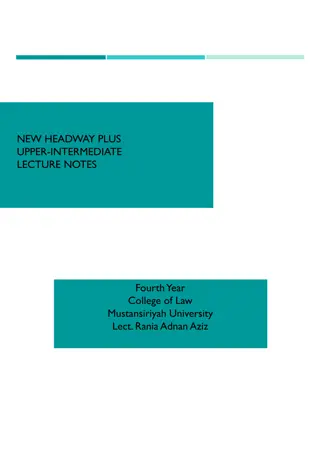Understanding Modal Verbs in English
Modal verbs in English such as 'must', 'have to', 'mustn't', and 'don't have to' are used to express obligations, prohibitions, and lack of necessity. 'Must' and 'have to' convey internal and external obligations, while 'mustn't' indicates prohibition and 'don't have to' implies lack of necessity. Examples and distinctions between these modal verbs are provided to help understand their usage in different contexts.
Download Presentation

Please find below an Image/Link to download the presentation.
The content on the website is provided AS IS for your information and personal use only. It may not be sold, licensed, or shared on other websites without obtaining consent from the author. Download presentation by click this link. If you encounter any issues during the download, it is possible that the publisher has removed the file from their server.
E N D
Presentation Transcript
MUST MUST express a strong personal-internal obligation . It means that it comes inside and the speaker almost certainly agrees with the obligation. ex. I must go to bed earlier. *Here, speaker believes that going to bed earlier is a good choice. Nobody forces the speaker to go to bed earlier.
HAVE TO HAVE TO expresses a strong external obligation . It means that it comes from outside, from a kind of authority. ex. My boss is very strict. I have to arrive at work at 9 sharp. *Here, arriving at work is not what the speaker believes or thinks as the right choice. His boss forces him to be at work on time.
What is the difference between the sentences below? 1.I must stay at school after the classes for extra studies. - , , . 2. I have to stay at school after the classes for extra studies. - .
EXERCISES Let s try some. 1.They need this report urgently. I finish it now. 2.I arrive early every morning. Because I like to start working early in the morning . 3.Jim go to work on foot. He thinks walking to work every morning is healthier. 4.She answer the phone.That's her job. have to must must has to 5."You do your homework" said the teacher.
EXERCISES 6."We invite the Smiths for dinner one day" said my wife. 7.Tom leave home at 7.30 to get to school at 9. 8."I hurry or I'll miss my bus! 9.You attend all personnel meetings - it's written in your contract. 10."I call my sister - it's her birthday
MUSTNT MUSTN T ... expresses that something or doing something is forbidden.It means prohibition. Ex.Students mustn t drink coffee during the lesson. We mustn t talk about it.It is a secret.
DONT HAVE TO DON T HAVE TO expresses that there is no obligation or necessity.It means doing something is not necessary. 'Don't have to' expresses something that is not required. However, if the person may choose to do so if he or she wants. ex. I don t have to study for the university exam. Because I have already graduated from one.
What is the difference between the sentences below? 1. She has to write a report of the meeting. - Because she is the secretary and this is her job. / , . 2.She doesn t have to write a report of the meeting. -(But she can do if she wants.)/ , .
CORRECT THE MISTAKES Children don't have to play with fire. ------------------------------------------------------------------- I must go to work every day. It's my job! ------------------------------------------------------------------ It's my job! She doesn't have to go to that meeting. She'll ruin it! --------------------------------------------------------------------------------- Have you to go to classes on Thursday? --------------------------------------------------------------------------------------------- She hasn't to do homework next week. ---------------------------------------------------------------------------------------------
CORRECT THE MISTAKES I'll must hurry up if I don't want to miss the bus. ----------------------------------------------------------------------------- You mustn't come if you don't want to meet him. I just thought it would be a good idea. ------------------------------------------------------------------------------- My daughter isn't having to attend class this afternoon. ------------------------------------------------------------------------------- I has to help him every day at work. -------------------------------------------------------------------------------
STUDENTS! You should carefully read and watch my presentation, to see which are the differences between have to and must, don t have to and mustn t, read the explanations and examples. And do exercises 1 and exercises 2 in your notebooks. THANKS!
Made by Teacher Aleksandra Simoncevska Necovska Ou.Sv. Kiril i Metodij - Bitola
